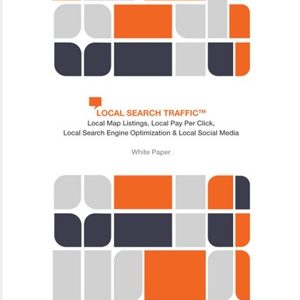
The impact of the Coronavirus pandemic on the travel sector has underscored the crucial need for both dynamism and agility within SEO strategies specific to this industry.
At the core of any effective SEO strategy lies a foundational content plan.
From this foundation, you can design and develop a flexible reviews strategy that not only meets your SEO goals but also fulfills broader business objectives:
- Increased brand awareness.
- More leads.
- Enhanced customer retention.
A common pitfall when working with travel companies is the belief that ranking for specific keywords requires lengthy prose.
While this holds true for many informational queries, the travel industry can only repeat phrases like “golden sandy beach” so many times.
Reviews offer similar content in a more distinctive manner.
Given the uncertainty and constantly changing travel restrictions, understanding and enhancing elements of your existing strategy to allow for more agility can facilitate a strategic evolution rather than revolution.
Enhance Your Reviews Strategy
Reviews and testimonials are critical.
This is not new information.
As travel routes and destinations reopen, reviews can play a pivotal role in building user trust and boosting conversion rates.
Nevertheless, reviews are often under-utilized, resulting in missed opportunities for both increased conversions and business development.
Typically, reviews are categorized as positive or negative.
However, reviews can be more nuanced and serve as building blocks for potential customers to engage in experience forecasting.
Experience forecasting involves users predicting their potential experiences based on the feedback from others, enabling them to make more informed decisions.
To achieve this, we need to comprehend the various aspects of a review, which ultimately reflect the emotions experienced by the customer.
These can be categorized into reviews of:
- The brand experience.
- The customer experience.
- The product experience.
Asking the right questions after a customer has completed their experience can enhance these reviews.
They not only help other users forecast their experiences but also offer valuable feedback to improve business aspects and the overall user experience.
Brand Experience Reviews
Brand experience reviews encompass both controllable and uncontrollable factors, including how the overall experience aligns with customer expectations of the brand.
This variable fits into both categories of control.
Your messaging and PR efforts portray a certain image of your brand and what it offers.
If you market yourself as a luxury brand, you must deliver an experience that meets the luxury market benchmark.
To understand the information users are seeking, you can guide reviewers to discuss the brand by posing questions such as:
- Did Brand X meet your expectations as a luxury/low-cost provider?
- Would you recommend Brand X to your friends and family for similar vacations?
- When booking your vacation, who would you compare Brand X to in terms of value proposition?
- Was this your first time vacationing with Brand X?
Through these questions, you can:
- Determine if your messaging and product are aligned.
- Extract personal sentiments from the reviewer.
- Identify market competitors from the reviewer’s perspective.
- Detect trends in repeat customers.
Customer Experience Reviews
The customer experience is controllable.
Key elements for a positive customer experience include:
- Responsive communication.
- Well-structured policies.
Effective communication is vital from the booking stage to the post-booking stage, where you can influence reviews.
Well-structured policies help expedite responses when things go wrong and can turn potentially negative scenarios into acceptable ones.
This can transform negative customer experience reviews into constructive feedback.
As many bookings are made online without direct human interaction, your website often serves as a proxy for your customer service.
Useful questions for review surveys include:
- How did you find the booking process?
- Could you find all the information you were looking for?
- How would you rate the hotel staff?
Product Experience Reviews
The product experience review encompasses the overall vacation.
Many elements may be beyond your control, but this is a valuable source of experiential information from your customers.
This is also where you can blend reviews with traditional content marketing.
For instance, if a customer has visited Rome and you plan to use the review on a Rome-related page, you can ask questions like:
- Would you recommend Brand X for trips to Rome?
- How would you describe your vacation in Rome?
- What were the highlights of your vacation?
This approach requires some level of CRM integration.
But given the availability of various connectors and data pipeline software providers, this is achievable at different costs and entry levels.
Make Reviews Easy to Digest
Most websites treat reviews similarly – either through third-party API integrations or by copying and pasting them onto the page.
However, by gathering better reviews and feedback, you can create a superior review experience.
Recently, Google introduced a “cliff notes” section in Google Reviews, highlighting common themes that users can filter by.
Reviewing your collected feedback and pulling out key points can make it easier for users to make quicker decisions.
This doesn’t require integration with a review provider but can be an effective module on your product pages.
More Resources:
- Travel SEO: Competing in Organic Search Today & Beyond
- 7 Basic SEO Best Practices from Huge Travel Brands
- Agile SEO: Transitioning from Strategy to Action



